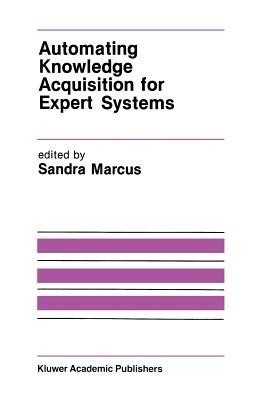Automating Knowledge Acquisition for Expert Systems(English, Paperback, unknown)
Quick Overview
Product Price Comparison
In June of 1983, our expert systems research group at Carnegie Mellon University began to work actively on automating knowledge acquisition for expert systems. In the last five years, we have developed several tools under the pressure and influence of building expert systems for business and industry. These tools include the five described in chapters 2 through 6 -- MORE, MOLE, SALT, KNACK and SIZZLE. One experiment, conducted jointly by developers at Digital Equipment Corporation, the Soar research group at Carnegie Mellon, and members of our group, explored automation of knowledge acquisition and code development for XCON (also known as R1), a production-level expert system for configuring DEC computer systems. This work influenced the development of RIME, a programming methodology developed at Digital which is the subject of chapter 7. This book describes the principles that guided our work, looks in detail at the design and operation of each tool or methodology, and reports some lessons learned from the enterprise. of the work, brought out in the introductory chapter, is A common theme that much power can be gained by understanding the roles that domain knowledge plays in problem solving. Each tool can exploit such an understanding because it focuses on a well defined problem-solving method used by the expert systems it builds. Each tool chapter describes the basic problem-solving method assumed by the tool and the leverage provided by committing to the method.


